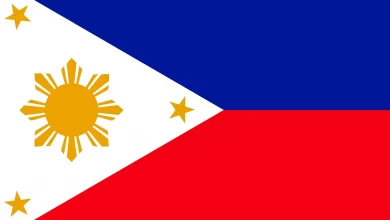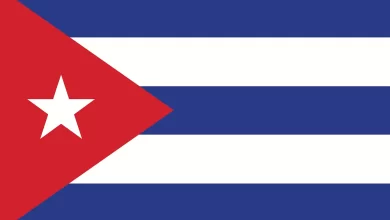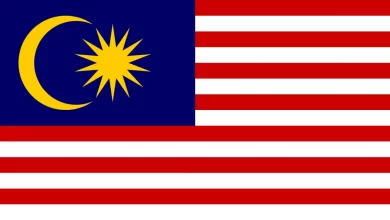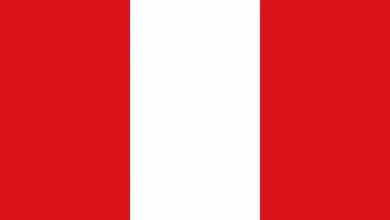Japan is a nation in the North Pacific Ocean that consists of many islands. It is a stunningly beautiful country as around 70% of the country is covered by mountains and hills. It has a fascinating and multifaceted culture; on the one hand, it is a society steeped in thousands of years of traditions; on the other, it is a society in constant flux, with constantly changing fads and fashions and technological advancement that constantly pushes back the limits of Possibilities.
- Japan is an island country stretched in more than 3000 km (1900 mi) of land along the East Asia pacific coast. The country consists of 6852 islands, out of which five main islands are Hokkaido, Honshu, Kyushu, Shikoku, and Okinawa.
- Japan shares common seas with Korea, Russia, and China.
- The Japanese name of the country is Nippon-koku or Nihon-koku, which means “the sun’s origin and is often translated as “Land of the Rising Sun.”
- Out of all the adoption in japan, Child adoption is only 2% rest is the adoption of mainly men of age between 20-30.
- Tokyo has 160,000 restaurants which is highest than any other city in the world. Two-thirds of these restaurants are Michelin-starred restaurants that serve Japanese cuisine, while the others serve a variety of foods, including French, Spanish, Chinese, and Italian.

Resturant in Tokyo ©Unsplash - The names of two big brands Honda and Toyota is derived from Japanese words for different kinds of rice field.
- Japnese gifted us with some life-changing inventions. Some are Comic books, judo, karate, Play station, Nintendo, Portable electrocardiograph, Instant noodles, Fortune cookies, Camera phones, QR Code, Compact disk player, Lithium-ion battery, and pocket calculator.
- In 1979, Nippon Telegraph and Telephone (NTT) launched the world’s first cellular network in Japan.
- Around 69,785 people in Japan are over 100 years old, and over 33.0% of the population is above the age of 60.
- The national sport of the country is sumo wrestling. However, baseball is also a popular sport.

Sumo wrestling by two athletes ©Unsplash - In 1908, the Japanese ship Kasato Maru arrived in Santos Harbor with the first permanent Japanese immigrants to Brazil. In 2014, the no of people of Japanese descent reached the 1.5 million mark in Brazil.
- The nickname for Japanese businessmen is “sararīman,” which translates in English to “Salaried Man.”
- Japan comes on the 5th rank on the entire planet in terms of using most electricity.
- The number 4 is considered to be unlucky because the Japanese word for four sounds very similar to the word death.
- Japanese have a tradition to bow in front of each other as a gesture of salutation, reverence, apology, or gratitude in social or religious situations.

Akuppa John Wigham via Wikimedia Commons (A Group of Boys Bowing) - In Japan, tipping waiters at restaurants is not a norm. However, some restaurants add a 5-10 % service charge to the bill.
- In Japan, when a man reaches the age of 60, he is commemorated with a special kind of ceremony. In this ceremony, the man wears a red kimono, which denotes that the person no longer has the responsibilities of being a mature adult.
- Japan and Singapore have the most powerful passports in the world. Over 191 countries allow visas on arrival for these countries’ passport holders.
- Japan is the most earthquake-prone country on the planet as it lies in a sensitive seismic zone. Every year the island country faces more than 1500 earthquakes.
- There are over 30 national parks, out of which Yakushima national park is the biggest with an area of 325.5 km2.

Yakushima national park ©Unsplash - On March 11, 2011, the country got hit by the biggest earthquake in the history of japan. On the Richter scale, the earthquake was noted to be of 9.0 magnitude. The quake triggered a high tide tsunami which left 29000 people dead and damaged a nuclear reactor from which the radiation got leaked.
- Japan has the second-highest number of McDonald’s restaurants, just after the united states. The country has around 3000 McDonald while the USA has about 14,146.
- The country is the 10th most crime-free country on planet earth.
- In Japan, sleeping at the workplace is a common practice and is widely accepted. This is due to the fact that the employees work to the exhaustion and thus need time to rest their brains.
- Tokyo is the biggest city in the world and has a population of about 38 million people. It is also one of the most expensive cities on the globe.

Tokyo Aerial View ©Unsplash - Japan is a land of forests and mountains. About 25 million hectares, or 67 percent of the total land, is forested. This figure is over twice as large as the world’s average 29 percent forest cover of land.
- There is a forest in the country known as the ‘Suicide Forest’ or Aokigahara forest. It is located at the edge of mountain fuji which is roughly a two-hour drive from the capital city Tokyo.
- There are over 23 UNESCO World heritage sites, out of which 19 are cultural, and 4 are natural ones.
- Japan is the world’s 4th most biggest consumer of fish. Every year Japanese eat estimately 730,783.86 of fish.
- Kyoto is the oldest city in Japan and is believed to be founded in the year 794.

A street in Kyoto ©Unsplash - Tokyo’s Haneda Airport is the 5th most busiest airport in the world, with visits of 86.9 million people in the year 2018.
- Japan is the 3rd most educated country on the planet.
- Japan has the most number of volcanoes than any other country on the planet. There are over 270 volcanoes, out of which 100 are active volcanoes and accounts for 10% of the total volcanoes of the world.
- Approximately 33% or 125,500 sq km of the total land of the country is habitable.
- Horyuji Temple is the oldest building in the country and was made in the year 607. It was also designated as a world heritage site in the year 1993.

Horyuji Temple ©Pixabay - Koi is the national fish, and the Green pheasant is the national bird of the country.
- The country uses 24 billion of chopsticks every year, which is equivalent to 200 chopsticks per person in a year.
- In Japan, it is common to see watermelons cubical or square-shaped. The watermelons are put into boxes while they are growing, which gives them this kind of shape. This is done because squared watermelons are easy to store and are more mobile.
- There are 326 rivers flowing from the land, out of which 13 are class A rivers. Shinano River is the longest and widest river and flows through a distance of 367 Km.
- Mount Fuji is one of the biggest tourist attractions and biggest mountain peak in the country. It has an elevation of 12388.451 (3,776 m)and is also the national mountain.

Mount Fuji ©Pixabay - There is an island in the country known as the “Rabbit Island,” which is full of rabbits. It is located two miles off the coast of the Japanese city of Takehara, in Hiroshima Prefecture.
- The nuclear bombing of Hiroshima and Nagasaki led to the deaths of at least 150,000-246,000 people.
- Japanese cherry blossom is the national tree of Japan. Whereas chrysanthemum is the national flower.
- A Japanese sushi tycoon Kiyoshi Kimura paid a whopping $3.1m (£2.5m) for a giant tuna making it the world’s most expensive fish. The weight of bluefin tuna was whooping 278kg (612lbs) and was purchased at the first new year’s auction of Tokyo’s new fish market.
- The country is home to the world’s oldest company which is a hotel named ‘Nishiyama Onsen Keiunkan’ and was opened in 705.

Boltor via Wikimedia Commons (The oldest hotel in the world Nishiyama Onsen Keiunkan)
Quick Facts about Japan
- CAPITAL CITY: Tokyo
- POPULATION: 125.1 million (2022)
- POPULATION RANK: 12th
- LARGEST CITY: Tokyo
- OFFICIAL LANGUAGES: None but mainly Japanese
- GDP NOMINAL: $5.413 trillion
- GDP RANK: 3rd
- CURRENCY: Japanese Yen
- FOUNDED: 660BC
- FATHER OF THE NATION: Ten-noh
- TOTAL AREA: 377,915 km2
- AREA RANK: 63rd worldwide
- CONTINENT: Asia
- AVERAGE LIFE EXPECTANCY: 84.45 years (2021)
- ARMY STRENGTH: 150,700 active personnel
- ARMY RANK: 7th
- LITERACY RATE: 99 %
- PER CAPITA INCOME: 48,480 PPP dollars (2022)
References
- Britannica-Japan
- Wikipedia-Japan
- News.bbc.co.uk(tokyo total resturants)
- Wikipedia-Japanese inventions
- Wikipedia-Mobile Phones(the worlds first cellular network)
- Wikipedia-Names of Japan(japan name as land of the rising sun)
- Washingtonpost.com(people above 100 age)
- Wikipedia-Aging of Japan
- Livescience.com(total earthquakes country face in a year)
- Investopedia.com(most number of mc donalds resturants)
- Amusingplanet.com(japnese employees sleeping at work)
- Wikipedia-Bowing in Japan
- Livejapan.com(tokyo is the world biggest city and the population)
- fedena.com(3rd most educated country in the world)
- Volcanodiscovery.com(most number of volcanoes)
- Wikipedia-Chopsticks(total chopsticks used by japan)
- Wikipedia-Japan rivers
- Historyhit.com(total people died in hiroshima and nagasaki nuclear blast)
- Businessinsider.com(worlds oldest company)
- BBC.com(the biggest tuna fish)






